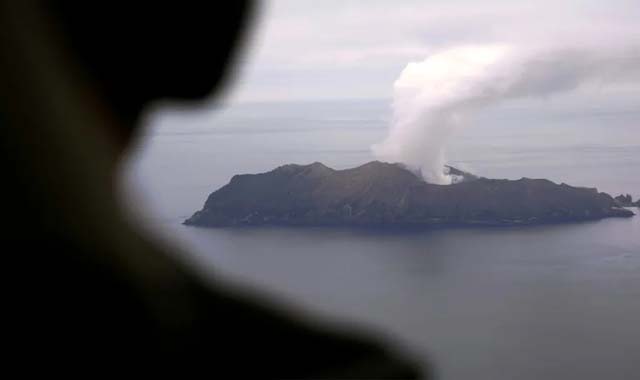News Flash

AUCKLAND, Oct 3, 2025 (BSS/AFP) - An inquest heard on Friday of lifelong injuries and years of grief from survivors and family members of those who died in a massive volcanic eruption on New Zealand's northern island in 2019.
Around 47 people were on White Island, also known in Maori language as Whakaari, in December 2019 when a deadly column of burning ash and steam blasted from a volcanic vent.
Twenty-two people died and nearly all the survivors were left with horrific burns.
The eruption off the coast of the country's North Island prompted a massive medical operation that saw many victims treated in burns units in Australia and New Zealand.
Since then, no boat or aircraft tours have been allowed to land on the island.
Almost six years on, an inquest is seeking to assess the emergency response that day -- as well as regulatory oversight of tours to the volcano -- and propose changes.
The opening day of the inquiry was held in the small coastal town of Whakatane, where rescue efforts at the time of the eruption were based. The island volcano can be seen just 50 kilometres (31 miles) off the coast.
The eruption "left a wake of destruction and trauma which went far beyond the geographic boundary of Whakaari", Constable Leanne Fairbairn said in a statement on behalf of the bereaved families and survivors of the eruption.
She described the eruption as a defining moment for everyone affected.
"Many describe their life as 'pre-eruption' and 'post-eruption'. The impact and effects of the eruption will always be felt," she said.
Many survivors, once avid hikers and nature lovers, are now unable to do the activities they once cherished, with their injuries requiring ongoing medical care and limiting their daily lives, she said.
"I am my own memorial to that day," she quoted one survivor as saying.
"But unlike any physical monument or statue, I can never walk away from it."
Another survivor spoke of the stigma associated with the disaster and the intense media attention on the case.
"I am often referred to as the volcano guy, which is frustrating," one man said.
"I don't want to be defined by the worst day of my life."
"No longer could they live quiet, peaceful lives," Fairbairn read.
"Instead, they were suddenly the attention of international media interest."
- Deep wounds -
Fairbairn said many of the families involved "will never be whole again".
"All they ask is that this doesn't happen to anyone else."
A non-publication order by a judge prevents the naming of the victims and their families.
One described losing their partner and child to the eruption and their deep loneliness over the ensuing years.
Many described the pain of their burns and the months and years spent in treatment and the burden on extended family and loss of dignity and self-esteem.
Some were scathing of the industry that had sprung up around tours to the volcano and condemned the money that was made while putting visitors in danger.
The inquest is expected to last six weeks.